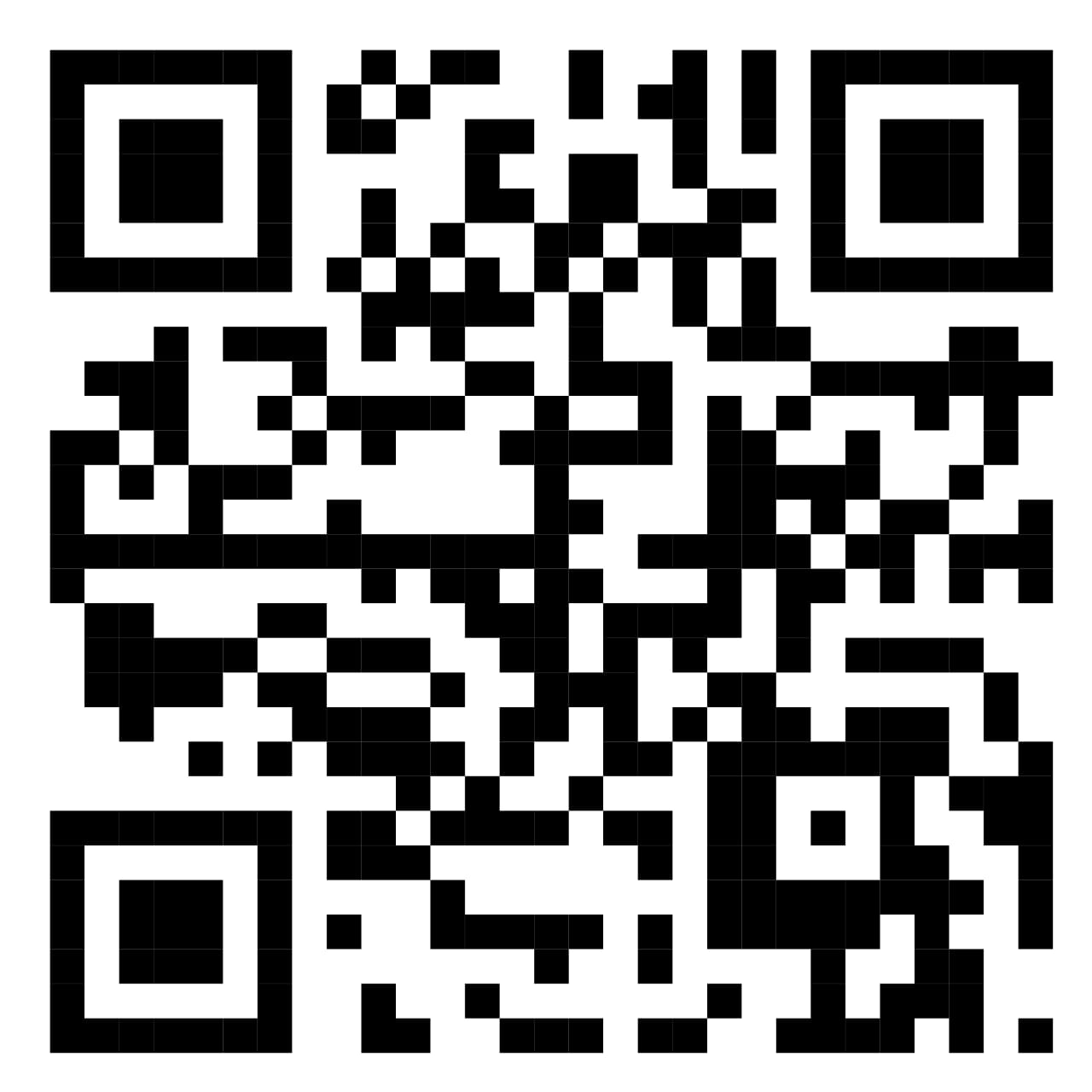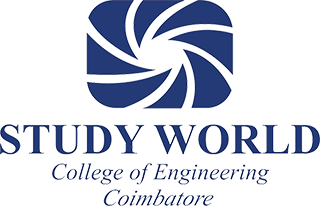Department of Science and Humanities
The Department of Science and Humanities consists of Chemistry, English, Physics, Mathematics, and other disciplines. All the disciplines in the department exist as separate divisions and maintain individual identities. The department comprises highly qualified, experienced, and goal-oriented members with specialisations in various fields. Besides Outcome Based Education, the department inculcates Value Based Education. Developing moral behaviour among the students, utilising the human resources, and coordinating academic responsibilities are the exclusive potentials of the department. The department regularly organises workshops and symposiums in new emerging areas for the benefit of students, researchers, faculty members, and industrialists. It also conducts socially related extension activities like quiz competitions and motivational programmes for the latest technological project exhibition.
Vision:
To facilitate Global Education for indigenous students, on a par with International Standards, thereby enabling the creation of Global Leaders who can make a positive impact on the society at all levels.
Mission:
To provide state-of-the-art infrastructure in each of the fields and provide global exposure to students, nurturing creativity, fostering research and empowering leadership in the process.
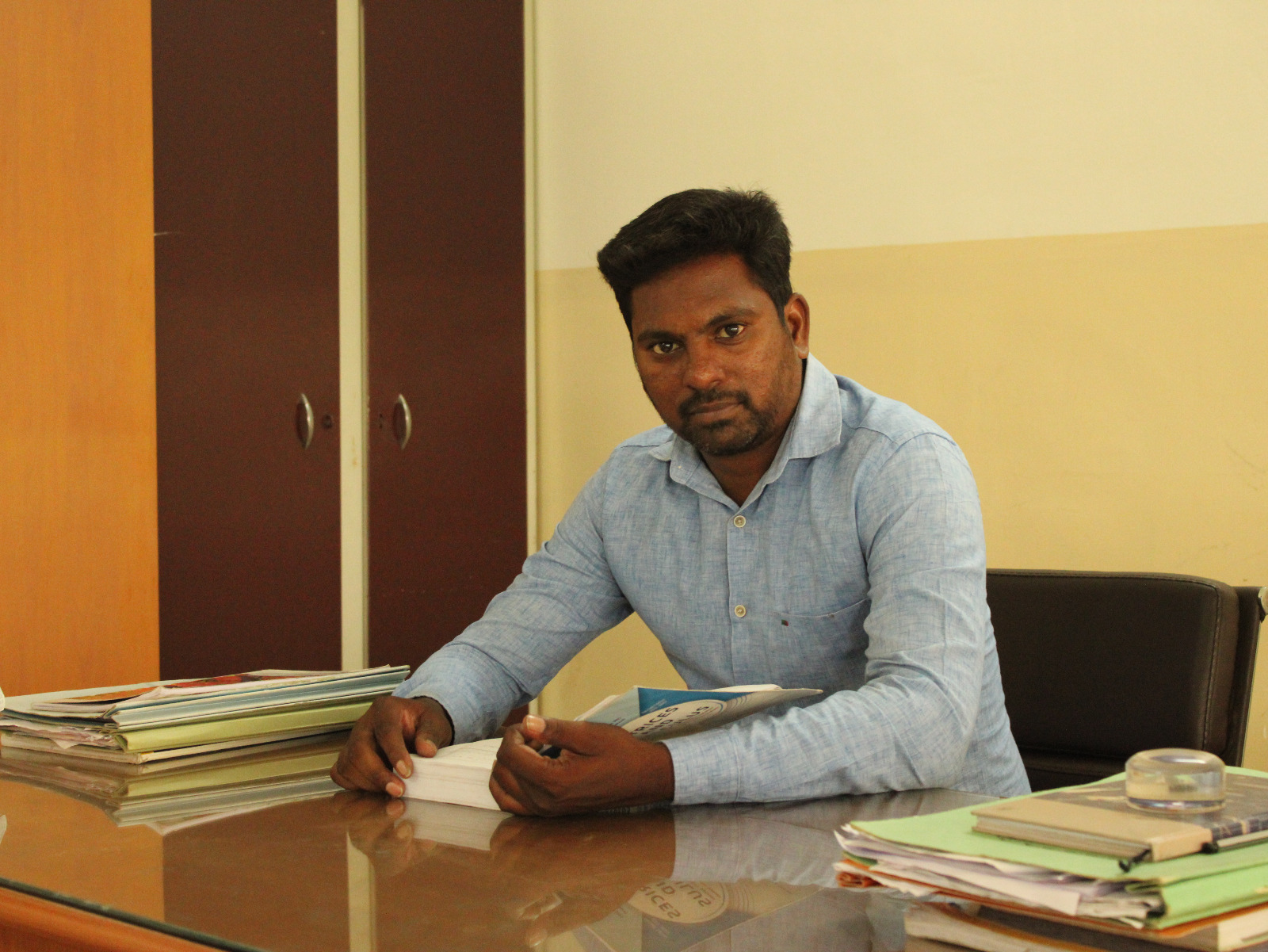
Welcome to Study World College of Engineering, Department of Science & Humanities (S&H). I am pleased to get connected to you and share my message this way.
The Department of Sciences & Humanities (S&H) offer courses of Science & Humanities for B.E., & B.Tech. Students. The department is the combination of four divisions, namely Division of Chemistry, Division of Mathematics, Division of Physics and Division of Humanities. The department has curriculum and allied activities that to provide a comprehensive education for students & it prepares them to be technically well–off, to be critical thinkers, productive citizens, and leaders in a wide range of careers: government as well as an array of managerial options in the private sector. The Department correlates with six undergraduate programmes, namely Electronic and Communications Engineering, Computer Engineering, Electrical Engineering, Mechanical Engineering, Artificial Intelligence & Data Structures and Information Technology, The Department has adequate academic and teaching staff. The mission of the Department is to produce the top quality education. To this end, we strive for excellence in teaching, training and career building. My sincere thanks to all the faculty members and the students who are contributing so much for the success of the department.
Dr. M. Selvaraj
Associate Professor & HOD
Science & Humanities
Study World College of Engineering
Coimbatore.
Faculties
| SL.NO | NAME | DEPT. | DESIGNATION |
| 1. | Dr. Selvaraj M | MATHS | Associate Professor |
| 2. | Mr. Satheesh Vikraman R | MATHS | Assistant Professor |
| 3. | Mrs. Indhuja T | MATHS | Assistant Professor |
| 4. | Mrs. Vasuki T | MATHS | Assistant Professor |
| 5. | Dr. Sureshkumar S | PHYSICS | Associate Professor |
| 6. | Dr. Sangeetha P | PHYSICS | Assistant Professor |
| 7. | Mr. Logababu P | PHYSICS | Assistant Professor |
| 8. | Mr. Senthil kumar P | PHYSICS | Assistant Professor |
| 9. | Mrs. Vinodhini R | PHYSICS | Assistant Professor |
| 10. | Dr. Muthuraj M | CHEMISTRY | Assistant Professor |
| 11. | Mrs. Sri Nisha Tharani S | CHEMISTRY | Assistant Professor |
| 12. | Mr. Moorthi R | ENGLISH | Assistant Professor |
| 13. | Mr. Saravanan K | ENGLISH | Assistant Professor |
| 14. | Mr. Nanjappan R | ENGLISH | Assistant Professor |
| 15. | Dr. Lakshiminarasu A | TAMIL | Associate Professor |
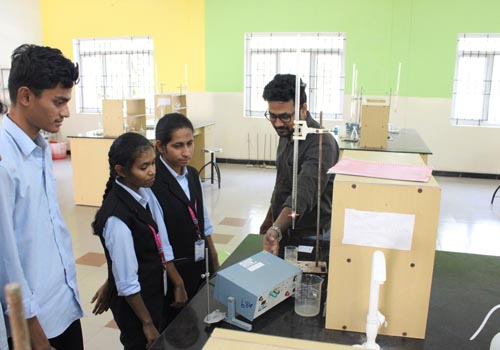
Chemistry lab
The chemistry discipline nurture scientific bent of mind in our students, guide them and mould them into responsible Engineers. The dynamic faculty members involved in teaching visual teaching/learning aids and learning resource materials are available and our chemistry laboratories are well-equipped. Most of the experiments are correlated to the theoretical concepts. This course lays the foundation of certain basic concepts and skills that can be repeatedly employed by the students in their future endeavors. This course also helps to improve the scientific temper of the students to conduct the various experiments.

English communication lab
The target of the discipline of English is to foster excellent communication skills among the students. Honing soft skills and communication skills is the need of the hour to face this competitive world. The diligent faculty members train the students in an iconic, feel-at-home learning environment to perform efficiently on campus as well as in their future workplaces. Students gain incredible communication skills through various learning activities in the classroom and the Language Laboratory. Students are also trained and provided with good opportunities to get valuable English proficiency exams like the Oxford University Online Courses Certification, etc.
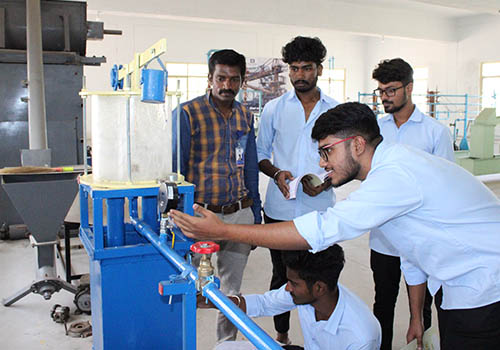
Mathematics
The core objectives of the department are to impart to students logical thinking, analytical reasoning, and problem solving skills; equip them with more technological skills and scientific computing techniques based on mathematical methods; introduce realistic applications of mathematics in related sciences; and enable them to appreciate the intrinsic aspects of mathematics. The faculties of mathematics are widening the vistas of rich knowledge for engineering students and deepening their aptitude in Queuing Theory, Random Process, Mathematical Transformations, Differential Equations, Calculus, etc. They play a vital role in building students’ confidence and making them proficient in problem-solving capability. Students are motivated to practise aptitude-related problems through an online portal (Skill Rack), through which they can improve their problem-solving skills (which help them perform well in competitive exams) and programming skills.

Physicslab
Experienced and energetic faculty members are passionately involved in teaching and research activities related to physics. They guide the students in applied physics, semiconductor physics, solid-state devices, and materials science. The ability to identify, formulate, and solve engineering physics problems and the ability to conduct, analyse, and interpret experiments in engineering physics are inculcated in the students. The research work is progressing in the fields of crystallography, crystal growth, thin films, and nanomaterials. The spacious and well-equipped physics laboratory helps the students gain thorough knowledge about the experiments. The members of Physics are working diligently towards fostering a scientific temperament and motivating students to do virtual labs as well.

Yoga Club
The prime motive of Yoga Club is motivation for better health. Yoga, in all of its forms, creates positive energy. Positive energy will help the individual become successful and live a life where powerful visions become reality. With a mission to provide a safe and light-hearted space for students to de-stress and empower themselves through the practise of yoga, our institution has conducted yoga practises every year since its inception. The biggest challenge to academic success is time management, balancing priorities, health conditions, social problems, relationships, sleep difficulties, and depression. In fact, yoga means not only doing exercise but also helping to practise keeping emotions well under control. Mental strength gained in yoga helps students fight against inconsistencies with increasing self-confidence, which looks more powerful. Yoga can empower in four ways: physical health empowerment, emotional empowerment, mental health empowerment, and spiritual empowerment. These can be achieved through yoga practises like asana, pranayama, and meditation. To help achieve the above benefits, Study World College of Engineering conducts activities related to yoga and meditation.
Engineering knowledge: Apply the knowledge of mathematics, science, engineering fundamentals, and an engineering specialization to the solution of complex engineering problems.
Problem analysis: Identify, formulate, review research literature, and analyse complex engineering problems reaching substantiated conclusions using first principles of mathematics, natural sciences, and engineering sciences.
Design/development of solutions: Design solutions for complex engineering problems and design system components or processes that meet the specified needs with appropriate consideration for the public health and safety, and the cultural, societal, and environmental considerations.
Conduct investigations of complex problems: Use research-based knowledge and research methods including design of experiments, analysis and interpretation of data, and synthesis of the information to provide valid conclusions.
Modern tool usage: Create, select, and apply appropriate techniques, resources, and modern engineering and IT tools including prediction and modelling to complex engineering activities with an understanding of the limitations.
The engineer and society: Apply reasoning informed by the contextual knowledge to assess societal, health, safety, legal and cultural issues and the consequent responsibilities relevant to the professional engineering practice.
Environment and sustainability: Understand the impact of the professional engineering solutions in societal and environmental contexts, and demonstrate the knowledge of, and need for sustainable development.
Ethics: Apply ethical principles and commit to professional ethics and responsibilities and norms of the engineering practice.
Individual and team work: Function effectively as an individual, and as a member or leader in diverse teams, and in multidisciplinary settings.
Communication: Communicate effectively on complex engineering activities with the engineering community and with society at large, such as, being able to comprehend and write effective reports and design documentation, make effective presentations, and give and receive clear instructions.
Project management and finance: Demonstrate knowledge and understanding of the engineering and management principles and apply these to one’s own work, as a member and leader in a team, to manage projects and in multidisciplinary environments.
Life-long learning: Recognize the need for, and have the preparation and ability to engage in independent and life-long learning in the broadest context of technological change.
Over 500 books covering all areas of computer science
Over 100 back issues of journals
200 Reference books are available
Open over 10 hrs a day
Reading hall with 20 seating capacity
Stacking area [over 10 shelves] 200 Sqft.
The library in charge, in consultation with the head of the department, will design and co-ordinate the rules, regulations and functioning of the department library.
